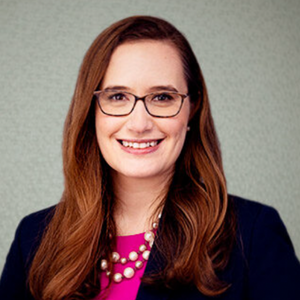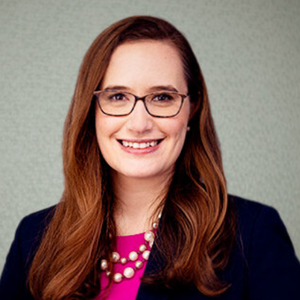A Webinar Series Sponsored by Goalbook
In this webinar series featuring renowned special education experts, we address the most important challenges faced by special education administrators in today's environment.
The nationally recognized speakers will provide real-world guidance based on research, best practices, and compliance to help you navigate the unique circumstances of the 2024–25 school year.
You’ll walk away from each session with fresh ideas, key concepts, and practical takeaways that you can implement with your educators and providers to help every student succeed.
Who should attend?
- Directors of Special Education/Special Services
- Supervisors of Special Education/Special Services
What is the cost?
It’s free! The Spotlight Series for Special Education Administrators is sponsored by Goalbook as part of our commitment to support the special education community and provided at no cost to you.
December 9, 2025
Retaining Special Educators: Practical Ideas to Make the Job More Rewarding and Less Stressful
Featured Presenters

Anne E. Mickey, Esq.
Counsel
Read More
Anne E. Mickey is an attorney with the law firm of Sands Anderson headquartered in Richmond, Virginia. Anne is a member of the firm’s K-12 school law team and focuses her practice in the area of special education law. In her more than 10 years of practice in this area, Anne has supported school divisions across Virginia with navigating complex legal disputes arising under the Individuals with Disabilities Education Act, Section 504 of the Rehabilitation Act, and Title II of the Americans with Disabilities Act. Her role spans from attending IEP meetings and Section 504 meetings to representing school divisions in IDEA due process hearings and federal and state court litigation. Anne is a frequent public speaker on special education law issues, with a personal interest in topics surrounding IEP drafting and facilitating productive and collaborative IEP team meetings. She approaches her presentations with the goal of providing proactive practices, strategies, and systems to support special education law compliance and to support the needs of students with disabilities.

Brandon Wright, Esq.
Special Education Counsel to Boards of Education and School Districts
Read More
Brandon K. Wright is a partner in the firm of Franczek P.C. Brandon focuses his practice on school law, having developed a particular interest in the field of special education, due process, and cooperative school districts. He regularly speaks at local, state, and national conferences on special education. Brandon has served as an Adjunct Faculty Member at Southern Illinois University, as well as at Eastern Illinois University. He has served as the Chair of the Executive Committee of the Illinois Council of School Attorneys and is an active member of the National School Attorneys Association special education committee. Brandon holds both a Juris Doctor and a master’s degree in educational administration.

Kate Martin
Special education consultant and former senior director of special education programs for a state Department of Education.
Read More
Kate Martin began her career as a reading specialist and special educator and then worked her way into multiple leadership roles at the district and state level. Kate served as the senior director of special education programs for a state Department of Education where she led state-level initiatives designed to improve implementation of special education programming. These included initiatives aimed at improving access to general education for students with disabilities while also improving the classroom culture and instructional design for all students. Kate is now an educational consultant and trainer via her company, Leverage Education, LLC.

Nathan Levenson
K–12 Education Consultant and Author
Read More
Nate is a recognized thought leader with expertise in raising achievement and improving equity for students with disabilities despite tight resources. He frequently speaks at national conferences and has authored several books including “Six Shifts to Improve Special Education and Other Interventions,” published by Harvard University Press. As a consultant, he has helped over 250 districts in 28 states better serve students with special needs and reduce inequities and systemic racism. As former superintendent he led an effort to reduce the number of students reading below grade level by 65% and decreased the special education achievement gap by 66%.
Retaining Special Educators: Practical Ideas to Make the Job More Rewarding and Less Stressful
The special education teacher shortage crisis continues to intensify as educators face unsustainable stress levels, complex responsibilities, and insufficient support systems. Special educators manage broader responsibilities, navigate stricter compliance deadlines, and often receive less institutional support than their general education colleagues, creating a perfect storm for burnout and turnover. Yet forward-thinking districts have discovered practical, cost-effective solutions that transform special education into a more sustainable and rewarding career path while improving student outcomes and protecting district resources. Join Nate Levenson, a recognized national expert and author who has consulted with hundreds of school districts across the country, as he shares actionable strategies from the most successful retention initiatives across the country. During this session, you’ll learn:
- Research-backed methods you can implement to help special educators specialize in their areas of strength, reducing stress and boosting achievement
- Streamlined approaches to your district’s meetings and documentation that maintain full compliance while reducing administrative burden
- Cost-effective strategies for strengthening site-based support and improving administrator-teacher communication
- Proven frameworks for creating more sustainable special education positions in your department that attract and retain quality educators
How Special Education Administrators Can Navigate Recent Legal Trends in FBAs and BIPs for Compliance
Student behavior management remains one of the most complex and legally challenging aspects of special education, with Functional Behavioral Assessments (FBAs) and Behavior Intervention Plans (BIPs) at the center of increasing litigation. Recent case law and federal guidance have created new expectations for how districts must approach behavioral supports under IDEA, making it critical for administrators to understand evolving legal standards and their practical implications. When FBAs and BIPs fall short of legal requirements or fail to effectively address behaviors, districts face significant compliance risks and potential due process challenges. In this session, special education attorney Brandon K. Wright, Esq., will analyze key legal trends and provide practical guidance to help your teams develop legally defensible behavioral interventions. By attending this session, you’ll gain:
- Critical insights into recent case law trends affecting FBA and BIP requirements under IDEA
- Updated understanding of federal guidance and how it aligns with current legal expectations
- Practical strategies for ensuring your district’s behavioral interventions meet FAPE standards
- Turnkey approaches to strengthen your district’s FBA and BIP processes
How Did SWD in Louisiana Grow Academically More than Any Other State? Actionable Insights for Your District
While many students with disabilities nationwide continue performing below pre-pandemic levels on NAEP assessments across all grades and subjects, one state has achieved remarkable success that breaks all previous records. Through strategic planning and effective implementation, Louisiana school districts transformed their approach to teaching students with mild to moderate disabilities, resulting in unprecedented growth that moved the state from 49th in the nation to exceeding the national average in mastery—the only state to show such dramatic improvement over a six-year period. This extraordinary achievement demonstrates that significant gains for students with disabilities are not only possible but replicable with the right strategies and commitment. In this inspiring session, Nate Levenson, who helped lead Louisiana’s transformation, will share the actionable strategies behind this historic success story that districts nationwide can adapt and implement. By attending this session, you’ll gain:
- Three common-sense best practices that drove Louisiana’s record-breaking student achievement gains
- Practical insights into what made Louisiana’s approach successful and how your district can replicate these results
- Strategic frameworks you can implement in your schools to build effective general education and special education partnerships
The Special Education Administrator’s Legal Roadmap to Compliant and Appropriate ESY Determinations
Extended School Year Services (ESY) determinations can be extremely challenging for IEP teams given that the IDEA statute and regulations provide only limited direction for how IEP teams should evaluate a student’s need for these services. While summer may still be a few months away, special education administrators should begin preparing their staff now with the knowledge and tools necessary to make educationally and legally defensible ESY determinations. Join school attorney Anne Mickey, Esq., as she reviews the essential considerations an IEP team must make when determining whether a student qualifies for ESY, the factors for determining the services that may be needed, and the most frequent issues that arise and complicate the provision of ESY services. By attending this session, you’ll gain:
- A toolbox of critical data points the IEP team should collect and review when making decisions concerning ESY.
- A step-by-step approach to navigating ESY discussions, including the data that supports a finding that a student’s progress would be “significantly jeopardized” without ESY services.
- Key insights from case law illustrating how courts analyze whether an IEP team’s determinations regarding ESY are procedurally compliant and substantively appropriate.
- An understanding of common problems that arise with ESY service implementation and proactive steps to address them.
Embracing Student Variance: An Administrator's Guide to Designing Instruction for All Learners
No two learners experience school in the same way. Yet too often, students are defined by test scores, labels, or subgroup categories—leaving educators with instructional approaches that overlook the full spectrum of learner needs. Embracing student variance is not just about serving students with disabilities, but about fostering general education collaboration of inclusive practices that move all students forward. In this session, educational consultant Kate Martin will explore how special education administrators can lead a shift in mindset and practice, equipping teams with approaches and frameworks that unlock student potential across diverse classrooms.
In this session, you will gain:
- Turnkey, high-leverage approaches to activities that will help you support change in educators’ practice
- Best practices and practical insights into how student variance impacts expectations and instructional design
- Strategies to identify and address the design barriers that contribute to instructional and behavioral challenges
The Administrator's Guide to Navigating Around IEP Design Pitfalls That Lead Teams Into Legal Hot Water
As an experienced administrator, you’ve likely navigated countless IEP challenges and built strong systems to support your teams. Yet from the courtroom perspective, school district attorneys are witnessing a concerning pattern: even well-run districts with seasoned leadership are making common IEP design mistakes that consistently result in legal disputes. With courts and hearing officers increasingly scrutinizing specific aspects of IEP design, administrators need updated guidance on the most widespread design mistakes that pose the greatest risk and how to steer their teams away from these dangerous waters. Join special education attorney Brandon K. Wright, Esq., for this session that cuts through fluff and complexity to give you a new perspective on the IEP design elements that matter most legally. During this session, you’ll gain:
- Clear identification of the most common IEP design mistakes that create serious legal vulnerabilities
- Updated analysis of how courts and hearing officers are currently ruling on these design issues so that you can prepare your teams accordingly
- Proven solutions your teams can implement to eliminate these common high-risk mistakes
- Practical guidance for coaching your IEP teams toward legally sound decision-making
The Special Education Administrator’s Guide for Inclusive, Student-Centered Classrooms
For too long, schools have relied on the myth of the “average” learner, creating environments that overlook both student variability and the strengths diversity brings to a classroom. Special education administrators play a critical role in shifting this narrative—championing instructional design that fits students, rather than forcing students to fit the design. When educators design for difference, they unlock the conditions for all learners to demonstrate their full potential. In this session, special education consultant Kate Martin will provide special education administrators with practical tools to lead this shift across their schools and districts. By attending, you’ll gain:
- Turn-key resources for your teams to strengthen inclusive design
- New insights into why equality can unintentionally undermine fairness in learning environments
- Practical district-wide strategies to build shared ownership of meaningful inclusion with general education colleagues
Threat Assessments and the IDEA: A Legal Playbook for Protecting FAPE and School Safety
The intersection of student safety and special education law is one of the most complex and sensitive areas facing administrators today. Join school attorney Anne Mickey, Esq., as she uses real-world legal dilemmas to conduct an in-depth analysis of the compliance errors that can occur when threat assessment procedures collide with special education law. This webinar will provide special education leaders with important legal insights that should be considered when determining how to proceed in a manner that protects both the school community and a student’s rights under the IDEA, Section 504, and other disability-rights laws. By attending this essential session, you’ll gain:
- The critical intersections and compliance traps between threat assessment procedures and federal laws, including the IDEA, Section 504, and Title II of the Americans with Disabilities Act.
- The mandatory legal requirements for factoring the nature of a student’s disability into the threat assessment process.
- Best practices for legally integrating special education requirements into threat assessment determinations and subsequent disciplinary and instructional recommendations.
Quick Registration
Please click each session that interests you and register for each session separately.
- Retaining Special Educators: Practical Ideas to Make the Job More Rewarding and Less Stressful
- How Special Education Administrators Can Navigate Recent Legal Trends in FBAs and BIPs for Compliance
- How Did SWD in Louisiana Grow Academically More than Any Other State? Actionable Insights for Your District
- The Special Education Administrator’s Legal Roadmap to Compliant and Appropriate ESY Determinations
- Embracing Student Variance: An Administrator's Guide to Designing Instruction for All Learners
- The Administrator's Guide to Navigating Around IEP Design Pitfalls That Lead Teams Into Legal Hot Water
- The Special Education Administrator’s Guide for Inclusive, Student-Centered Classrooms
- Threat Assessments and the IDEA: A Legal Playbook for Protecting FAPE and School Safety



